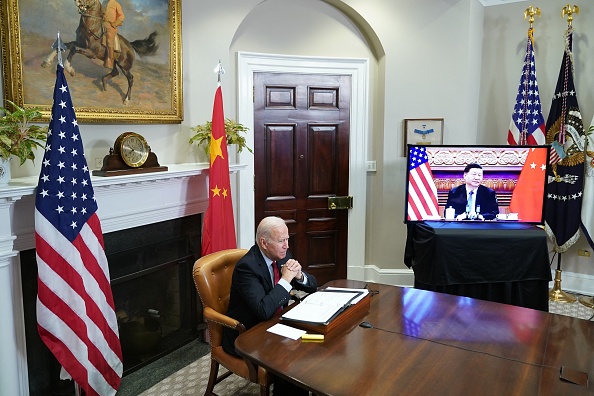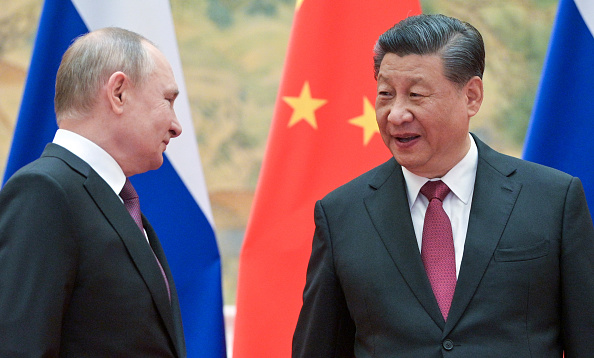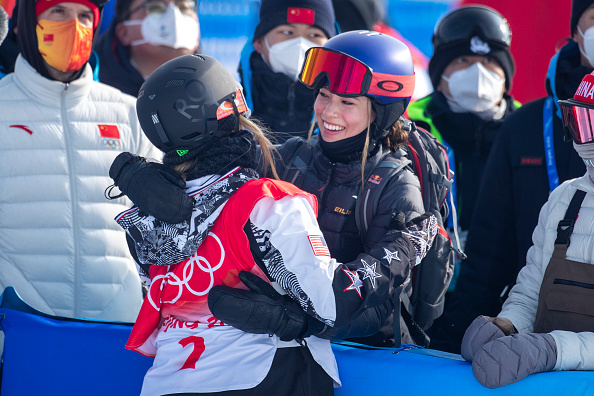
 In the Thick of It
In the Thick of ItWhile relations between China and the United States are no longer in free fall, the relationship is still precarious and both countries must find ways to cooperate to avoid any further deterioration of bilateral ties, according to leading Chinese analysts speaking at an event in Beijing organized by China-US Focus.
"The U.S. midterm elections and the upcoming Communist Party national congress in China will see both countries paying more attention to their domestic affairs," said Da Wei, director of the Center for International Security and Strategy at Tsinghua University. "Of course, this will make it more difficult to make policy adjustments but it also means neither side will want any major surprises or a sharp deterioration in relations."
Meanwhile, trade talks between the world's two biggest economies have stalled, despite the recent expiry of the phase-one deal signed in 2020. China's 2020 commitment to increase purchases of U.S. goods and services fell more than $213 billion short, and the Biden administration has since announced that they will hold China accountable for failing to meet their commitments from the Trump administration's trade deal.
"We intend to hold them to account," said U.S. Secretary of Commerce Gina Raimondo, adding that U. S. Trade Representative Katherine Tai "is in the thick of those negotiations now." For its part, China claims that it has done its best to live up to the terms of the 2020 deal, and that the pandemic-induced reduction in trade, exports, and travel made it difficult for Beijing to meet its targets.
If Beijing continues to fall short on its promises to buy U.S. goods, the Biden administration is considering a new China tariff probe and to demand a level playing field for international firms.
However, some American firms in China are criticizing the Trump-era protectionist policies, claiming that the America First Trade policies have weakened the ability of U.S. companies to defend themselves in China and elsewhere in Asia.
Read more in, "China-U.S. Detente: Avoiding Overestimation and Underappreciation," by Da Wei, Deputy Director of the Center for International Security and Strategy at Tsinghua University.
 A Friendship with No Limits
A Friendship with No LimitsIn a symbolic moment for geopolitical relations, Chinese President Xi Jinping proudly opened the 2022 Beijing Olympic Games standing beside Russian President Vladimir Putin. The pair presented a united front and said their friendship had "no limits," citing a mutually beneficial economic relationship and shared military technology.
While Russia massed troops on Ukraine's border, Taiwan watched with concern, fearing that if the U.S. were not to intervene in the event of a conflict, it would undermine the promise of American support for Taiwan. In Mainland China, the crisis is viewed by some as a potential diversion of America's military and diplomatic muscle, which could drain resources that might otherwise be directed at the Pacific.
Meanwhile, the U.S. maintains a focus on the Indo-Pacific region. Secretary of State Antony Blinken will soon embark on a trip designed to reinforce America's interests in Asia and its desire to counter China's presence in the region. His trip will take him to Fiji, Hawaii, and Australia, where he will meet with his counterparts from the Quad alliance, including Australia, India, Japan and the U.S. — a bloc of Indo-Pacific democracies created to counter China.
Read more in, "Can U.S. Ease Russia's Security Concerns?," by Wu Zhenglong, a Senior Research Fellow at the China Foundation for International Studies.
 Olympic Diplomacy
Olympic DiplomacyThe Olympics historically provide a stage for public diplomacy, with the ability to incite both confrontation and cooperation. And a week in, the 2022 Winter Olympic Games in Beijing have already experienced a flurry of diplomatic activity. Amidst a diplomatic boycott of the Games by the U.S., Australia, and more, President Xi Jinping met with multiple heads of state to commence Olympic events in his own diplomatic push. Xi toasted the 30+ leaders who attended the Olympics Opening Ceremonies at a gathering on Saturday, his first time joining a meeting of heads of state since the Covid-19 outbreak began in 2019.
He also met individually with leaders from Kazakhstan, Serbia, Turkmenistan, and more, largely discussing Belt and Road-related infrastructure investments and general cooperation. The meetings came after Xi and Russian President Vladimir Putin met last Friday to emphasize strengthened China-Russia relations, described by the state-run publication, The People's Daily as, "an important guarantee for maintaining an international strategic balance, world peace and stability."
Olympic athletes have their own opportunity to promote international relations as well. Skier and gold medalist Eileen Gu is perhaps the Beijing Games' most well known example. Born in California to an American father and Chinese mother, Gu has been navigating the geopolitical divide between China and the U.S. after choosing to compete for China in the 2022 Olympic Games in efforts to honor her mother's heritage, promote winter sports in China, and to build bridges. "Through skiing, I hope to unite people, promote common understanding, create communication, and forge friendships between nations," Gu said when she announced her decision.
Actions taken by the Chinese curling team last week also highlighted peak Olympic athlete diplomacy. After the U.S. beat China in a mixed doubles round on Saturday, the Chinese team presented their opponents with a set of commemorative pin badges featuring the panda mascot of the Games, Bing Dwen Dwen. Analysts have noted that the gesture echoed the 'ping pong diplomacy' that was prompted by a meeting between Chinese and American table tennis players in 1971, that eventually paved the way for U.S. President Nixon's 1972 visit to China that re-established bilateral ties. Meanwhile, China and the U.S. are actively preparing to commemorate the 50th anniversary of Nixon's historic visit with events that will "take stock of the history and look into the future," ministry spokesperson Zhao Lijian said. But while the 50th anniversary events bring hope for an ease in tensions that have increased leading up to the Beijing Games, Olympic athletes are already setting the tone for international cooperation and competition, highlighting the possibilities of a better future.
Prepared by China-US Focus editorial teams in Hong Kong and New York, this weekly newsletter offers you snap shots of latest trends and developments emerging from China every week, while adding a dose of historical perspective.
- 2022-02-04 Year of the Tiger
- 2022-01-28 Zero-Sum
- 2022-01-21 An Uncertain Future
- 2022-01-14 Digital Advances
- 2022-01-07 The Dawn of a New Political Year
- 2021-12-17 Clamp Down
- 2021-12-10 Debating Democracy
- 2021-12-03 Managing Competition
- 2021-11-19 Responsible World Leadership
- 2021-11-12 A Historic Transformation
- 2021-11-05 A Green Rivalry
- 2021-10-29 Dry Tinder
- 2021-10-22 A Diplomatic Burn
- 2021-10-15 Energy Crunch
- 2021-10-08 Stoking Tensions
- 2021-10-01 Great Power Coopetition
- 2021-09-24 Sign of Goodwill?
- 2021-09-17 State of Play
